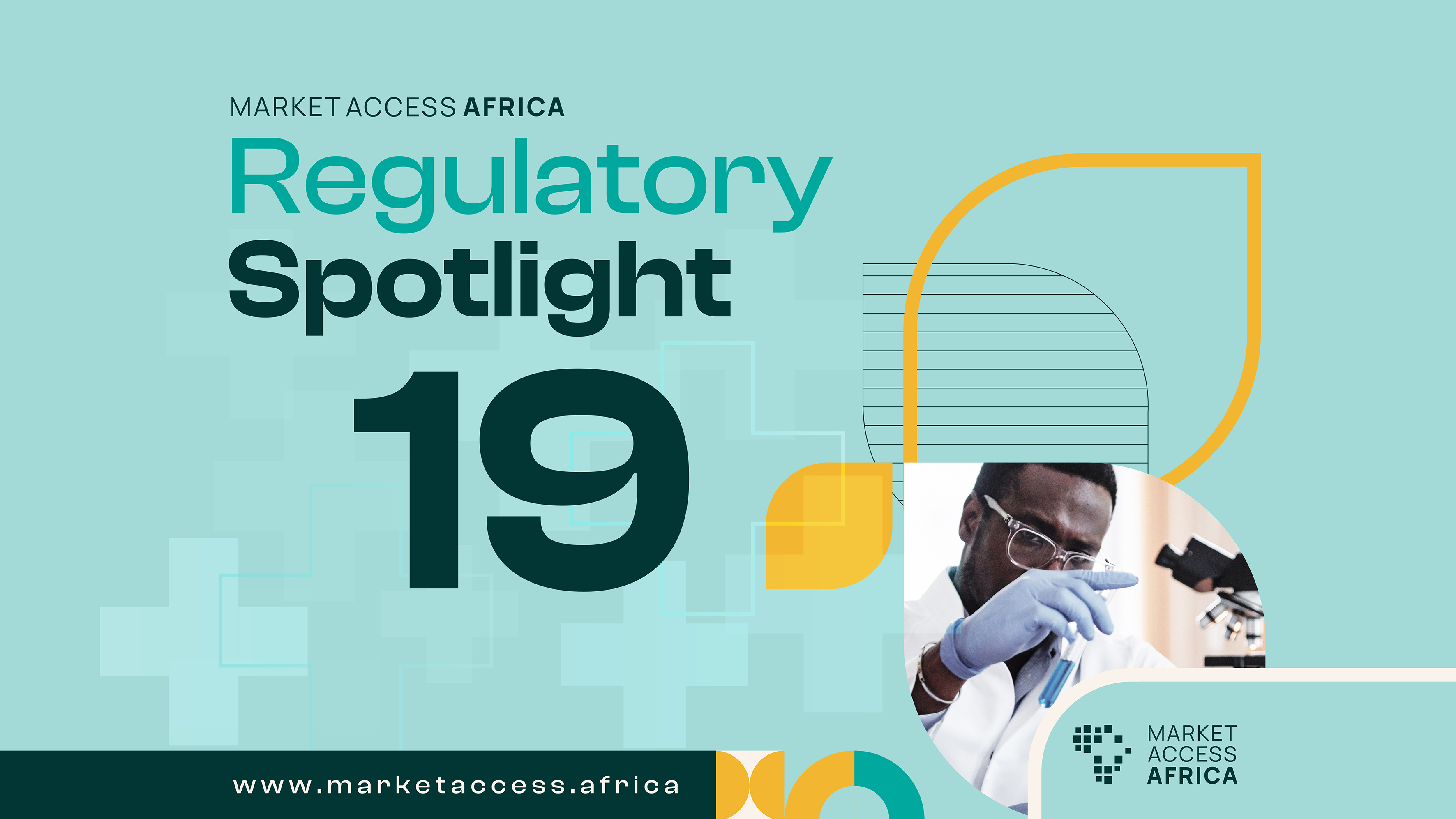
Showcasing the latest developments, news and updates from African national medicines regulatory authorities.
Welcome to this edition of the Market Access Africa Regulatory Spotlight. This issue highlights key developments across the African continent aimed at strengthening medicines regulation, enhancing patient safety, and advancing regulatory digitalisation and traceability initiatives.
Regulatory authorities are continuing to align with international standards, implement robust pharmacovigilance frameworks, and modernise processes to ensure efficient, transparent, and safe access to medical products. Highlights include: the publication of Algeria’s first Good Pharmacovigilance Practices Guide; Tunisia’s strategy for managing pending dossiers during the transition to the eCTD platform; Senegal and The Gambia advancing digital track-and-trace and traceability systems; regional cooperation initiatives involving Kenya and Somalia; and updates from MCAZ in Zimbabwe regarding public assessment and inspection report publication.
These updates reflect a sustained continental effort to enhance regulatory capacity, strengthen oversight of substandard and falsified medical products, and support public health outcomes. These initiatives reflect Africa’s accelerating move toward regulatory convergence and reliance frameworks.

The Directorate of Laboratory Services, which houses the National Drug Quality Control Laboratory of the National Drug Authority, has completed the World Health Organization (WHO) benchmarking exercise using the WHO Global Benchmarking Tool (GBT).
Following the assessment, the laboratory has been ranked at Maturity Level 4. According to WHO criteria, this level reflects an advanced regulatory system with established processes for continuous improvement and performance monitoring.
This development aligns Uganda’s laboratory services with internationally recognised regulatory standards for the oversight of medical products.
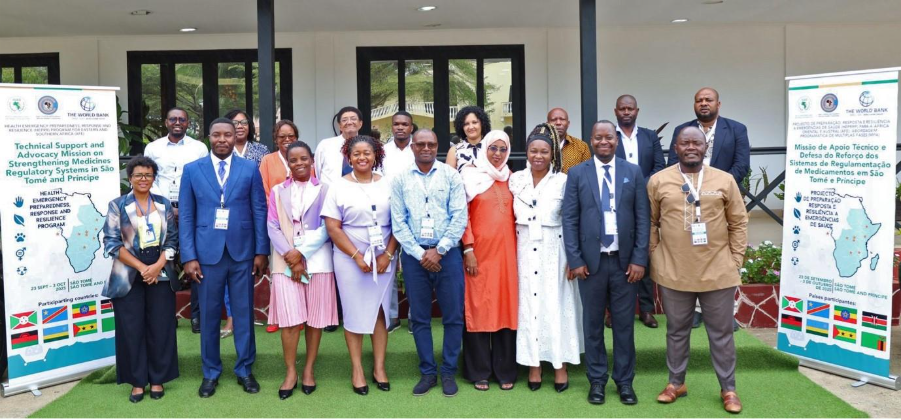
The African Medicines Regulatory Harmonisation (AMRH) Programme, in collaboration with the HEPRR MPA Project, conducted a technical support and advocacy mission in São Tomé & Príncipe. The mission focused on assessing the country’s regulatory system, supporting the establishment of the new National Medicines Regulatory Authority (ARFAMED), and aligning national legislation with the African Union (AU) Model Law on Medical Products Regulation.
During the visit, AMRH also promoted ratification of the African Medicines Agency (AMA) Treaty and provided technical input on strengthening frameworks to address substandard and falsified medical products. Consultations were held on the draft reliance framework and the sustainability plan under development for the Economic and Monetary Community of Central Africa States (ECCAS) Medicines Regulatory Harmonisation (MRH) programme.
The engagement aimed to embed AMRH’s continental instruments, including the AU Model Law, the Continental Plan to Combat Substandard and Falsified Medicines, and reliance-based regulatory approaches, within São Tomé & Príncipe’s legal and regulatory structures. These measures are intended to enhance regulatory capacity, improve access to quality-assured medical products, and strengthen preparedness and resilience for health emergencies.
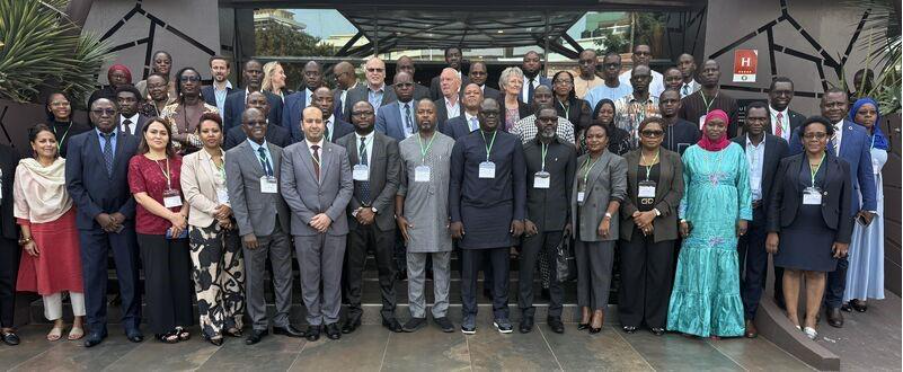
The 7th Steering Committee Meeting of the African Union Smart Safety Surveillance (AU-3S) Programme was held this week in Dakar, Senegal. The meeting brought together Heads of National Medicines Regulatory Authorities from across Africa, along with technical partners and experts.
Since its launch in 2020, AU-3S has expanded participation from 5 to 21 countries. The programme provides regulatory authorities with tools, data, and technical support to strengthen post-market surveillance of medical products.
The meeting reviewed progress to date, discussed priorities for advancing regulatory capacity, and formally welcomed new member countries, including Botswana, Burkina Faso, Cape Verde, Gabon, The Gambia, Namibia, Tunisia, Zambia, and Zimbabwe.
AU-3S is implemented in alignment with the African Union’s Agenda 2063, with the objective of supporting safe and effective use of medical products across the continent.

On 11 September 2025, the Zambia Medicines Regulatory Authority (ZAMRA) and its partners launched a Single Point of Contact (SPOC) Network to strengthen national collaboration in preventing, detecting, and responding to substandard, falsified, and illegal medical products.
The SPOC provides a platform for real-time coordination between law enforcement agencies, government ministries, civil society, and the public. It is expected to support timely evaluation of reports, enforcement action, and communication on the risks associated with such products.
Zambia participates in the World Health Organization (WHO) Global Surveillance and Monitoring System, which seeks to prevent and control the circulation of substandard and falsified medical products. Contributing factors to the issue in Zambia include limited access to quality medicines, weak technical capacity, fatal levels of wrong active ingredients or other toxic chemicals, and sometimes deliberate poisoning.
Participating institutions in the SPOC include the Ministry of Health, Ministry of Livestock and Fisheries, Ministry of Justice, Zambia Medicines and Medical Supplies Agency, Zambia National Airports Corporation, Zambia Revenue Authority, and the Drug Enforcement Commission, among others. The launch event was held at the Mulungushi International Conference Centre in Lusaka.
Summaries of recent Medicines Control Authority of Zimbabwe (MCAZ) circulars are provided below. Full texts are available through the linked documents.
Erratum to Circular 25 of 2025 – Publication of Zimbabwe Public Assessment Reports (ZimPARs)
MCAZ will begin publishing ZimPARs for medicinal product applications registered or refused from January 2025 onwards, excluding refusals due to regulatory timeline non-compliance. Reports will be available on the MCAZ website and contain only non-confidential information, with sensitive data redacted. ZimPAR templates for registered and refused applications in line with WHO recommendations are accessible here.
Erratum to Circular 16 of 2025 issued on 12 June 2025 – Publication of Clinical Trial Assessment and Inspection Reports
MCAZ will publish summarised Public Assessment Reports (PARs) for clinical trial applications and Public Inspection Reports (PIRs) for Good Clinical Practice (GCP) inspections on its website and/or the e-Clinical Trial Registry Platform. The procedure applies to all clinical trial applications authorised or rejected, and all GCP inspections conducted, from January 2025 onwards.
The requirement for Principal Investigators to review and comment on reports before publication has been removed. MCAZ has clarified that PARs reflect the information submitted to the Authority and approved by the Secretary for Health and Child Care. Any discrepancies identified after publication can be reported to MCAZ, and corrections will be made in line with established procedures.
PIRs will remain valid until the next inspection, at which point a new report will be published. Publication of summarised PARs and PIRs will be included as conditions of authorisation for all clinical trials approved by MCAZ. Reports will contain only non-confidential information, with confidential or proprietary data redacted in accordance with Section 73 of the Medicines and Allied Substances Control Act [Chapter 15:03]. Additional details can be read here.
Fee Schedule
MCAZ has implemented a revised fee schedule for licence and permit holders, effective 1 September 2025. Access it here.
The Senegalese Pharmaceutical Regulatory Agency (ARP) has undertaken two initiatives in September 2025 to strengthen pharmaceutical regulation and health security.
On 17 September, ARP held a working meeting with the Gates Foundation to validate an action plan supporting the digitization of the agency’s activities. Discussions focused on strategic priorities, planned areas of intervention, and next steps for effective implementation. The initiative aims to modernize and strengthen ARP’s institutional capacities, enhancing efficiency, transparency, and accessibility in pharmaceutical regulation.
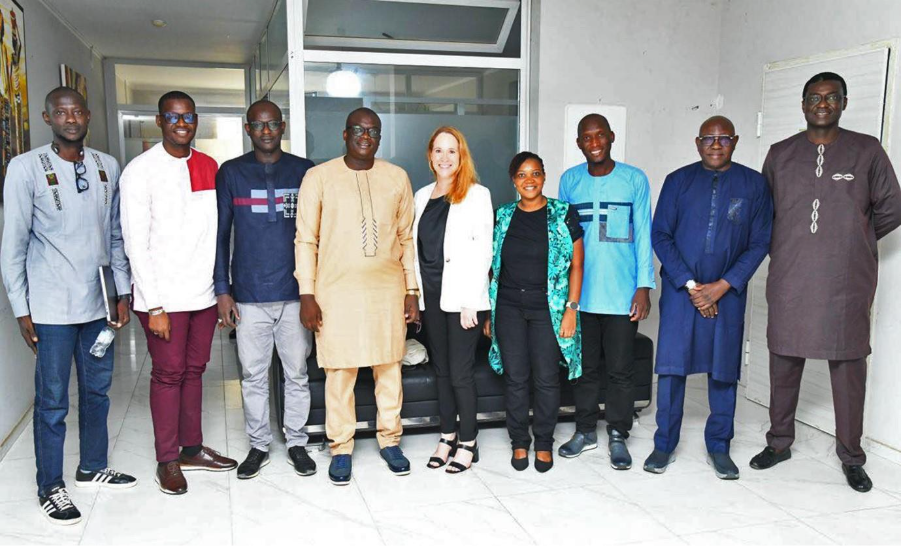
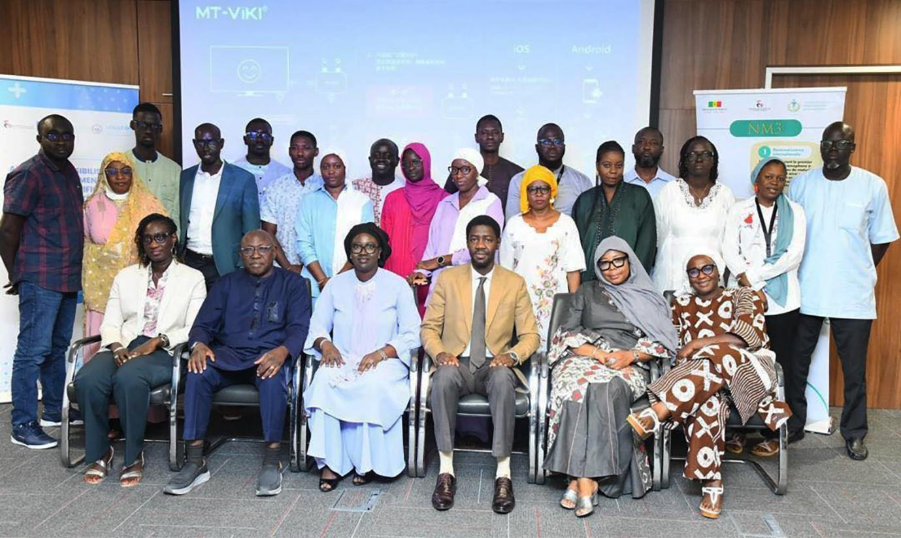
On 18 September, ARP participated in an initiation and awareness-raising workshop on the deployment of the Traceability and Verification System (TRVST), supported by UNICEF. The workshop engaged key public sector stakeholders and outlined the objectives, implementation modalities, and expected benefits of the system. The TRVST deployment represents a critical step in the serialization of medicines and other health products, aimed at improving traceability and strengthening health security for the population.
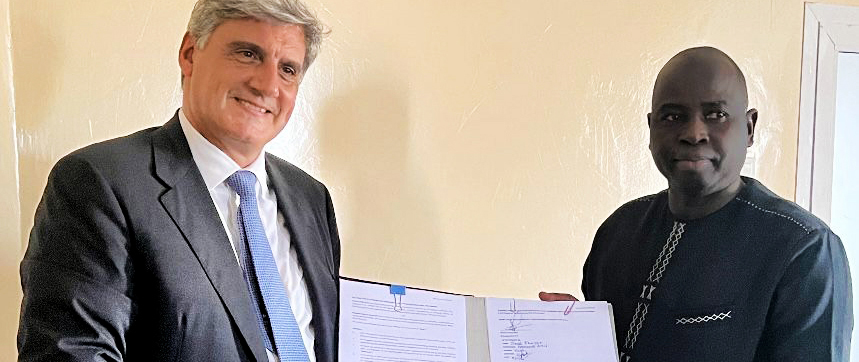
The Medicines Control Agency (MCA) of The Gambia has signed a partnership agreement with Antares Vision Group, facilitated through their local partner African Agenda Network (AAN), to support the development and deployment of a digital Track and Trace system for medicines.
The system is intended to strengthen MCA’s efforts in ensuring the traceability of medicines and addressing substandard and falsified medical products (SFMPs). Implementation of the system forms part of The Gambia’s National Action Plan on SFMPs and is expected to enhance the quality, safety, and efficacy of medicines available in the country.
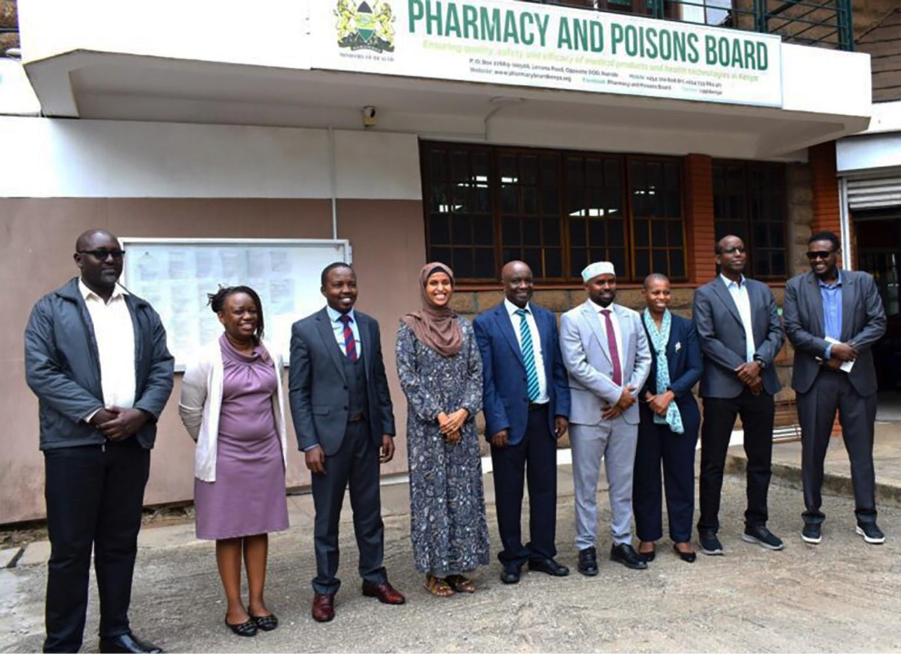
On 8 September 2025, the Pharmacy and Poisons Board (PPB) of Kenya hosted the Somali Medicines Regulatory Authority for discussions on strengthening collaboration in key regulatory areas.
The engagement focused on the listing of health products and technologies, licensing, import control, market surveillance, and capacity building. The Somali delegation was received by Dr. Anthony Toroitich, Director of Corporate Services, on behalf of the PPB CEO, Dr. F. M. Siyoi.
The meeting highlighted ongoing technical support provided by PPB to the Somali Medicines Regulatory Authority and underscored the importance of regional cooperation in advancing medicines regulation. The Somali delegation included representatives from the Interim NMRA, Federal Ministry of Health, and the WHO Somalia Country Office.
The National Agency for Medicines and Health Products (ANMPS) of Tunisia has outlined its strategy for managing pending dossiers as the agency transitions to the electronic Common Technical Document (eCTD) platform.
Key elements of the strategy include:
This strategy is designed to ensure continuity in regulatory processes while facilitating the transition to the digital platform.
In September 2025, the Algerian Ministry of Health and the Ministry of Pharmaceutical Industry released the first official version (v1.0) of the Algerian Good Pharmacovigilance Practices (BPPV) Guide. The guide aligns Algeria’s pharmacovigilance framework with international standards, including EU GVP and ICH guidelines, while adapting to the national healthcare context.
Key provisions include:
All reports must be submitted via the CNPM national e-Reporting platform.
The guide represents a significant step in strengthening pharmacovigilance in Algeria, enhancing patient safety, and supporting regulatory compliance.
The European Medicines Agency (EMA) has awarded a grant to the Council of Europe - European Directorate for the Quality of Medicines & HealthCare (EDQM) to strengthen the testing capacity of national quality control laboratories in Sub-Saharan Africa. The initiative covers laboratories at national, regional, and continental levels.
The agreement includes training activities to enhance the scientific and regulatory expertise of African laboratory authorities. Areas of focus include lot release testing, market surveillance, and the detection of falsified medicines.
In addition, the agreement foresees a pilot to support the establishment of the Network of African Reliance Laboratories. The network is intended to facilitate mutual recognition of quality assurance and quality control data, with the objective of improving regulatory cooperation, efficiency, and access to medical products.
The pilot will be implemented by the African Medicines Regulatory Harmonisation (AMRH) initiative of the African Union Development Agency (AUDA-NEPAD), with technical support from EDQM. Activities funded under the grant, including the pilot, are scheduled to run from Q3 2025 to Q3 2027.
Additional information is available here.


